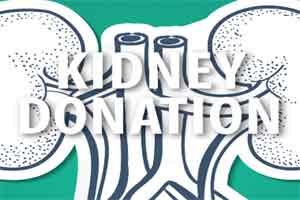- Home
- Editorial
- News
- Practice Guidelines
- Anesthesiology Guidelines
- Cancer Guidelines
- Cardiac Sciences Guidelines
- Critical Care Guidelines
- Dentistry Guidelines
- Dermatology Guidelines
- Diabetes and Endo Guidelines
- Diagnostics Guidelines
- ENT Guidelines
- Featured Practice Guidelines
- Gastroenterology Guidelines
- Geriatrics Guidelines
- Medicine Guidelines
- Nephrology Guidelines
- Neurosciences Guidelines
- Obs and Gynae Guidelines
- Ophthalmology Guidelines
- Orthopaedics Guidelines
- Paediatrics Guidelines
- Psychiatry Guidelines
- Pulmonology Guidelines
- Radiology Guidelines
- Surgery Guidelines
- Urology Guidelines
Limit cold ischemia time to decrease the discard rate of donated organs : Study

A new study indicates that many donated organs that are discarded might be suitable for transplantation if certain steps are taken to limit damage following donation. The findings appear in an upcoming issue of the Journal of the American Society of Nephrology (JASN).
In most cases in the United States, transplant organs come from donors following brain death, in which all the functions of the brain have stopped. Donation after circulatory death (DCD)--in which circulation, heartbeat, and breathing have stopped--has become increasingly more common, however, accounting for 17.7% of deceased donor kidney transplants in 2015 compared with only 7.3% in 2005. A DCD organ must be chilled after its blood supply has been cut off and then later warmed when its blood supply is restored. The process of restoring blood flow following this period of "cold ischemia" can lead to tissue damage.
To examine the contemporary use and outcomes of DCD kidneys for transplantation in the United States, John Gill, MD, MS (University of British Columbia and Vancouver's Providence Health Care) and his colleagues examined national data obtained between 2008 and 2015. The number of DCD kidneys recovered by the country's 58 donor service areas varied substantially (from 0 to 1072), and 25% of DCD kidneys were recovered in only 4 donor service areas. Overall, 20% of recovered DCD kidneys were discarded, varying from 3% to 33% among donor service areas.
DCD kidneys exhibited excellent organ survival, with a 5-year survival rate of 75%. Certain DCD kidneys were at higher risk of failing when compared with kidneys from brain dead donors, but only when the cold ischemia time was >12 hours.
"We found that use of DCD kidneys is variable throughout the United States, that the outcomes are generally excellent, and that the use of these organs could probably be safely increased if cold ischemia times are limited," said Dr. Gill.

Disclaimer: This site is primarily intended for healthcare professionals. Any content/information on this website does not replace the advice of medical and/or health professionals and should not be construed as medical/diagnostic advice/endorsement or prescription. Use of this site is subject to our terms of use, privacy policy, advertisement policy. © 2020 Minerva Medical Treatment Pvt Ltd